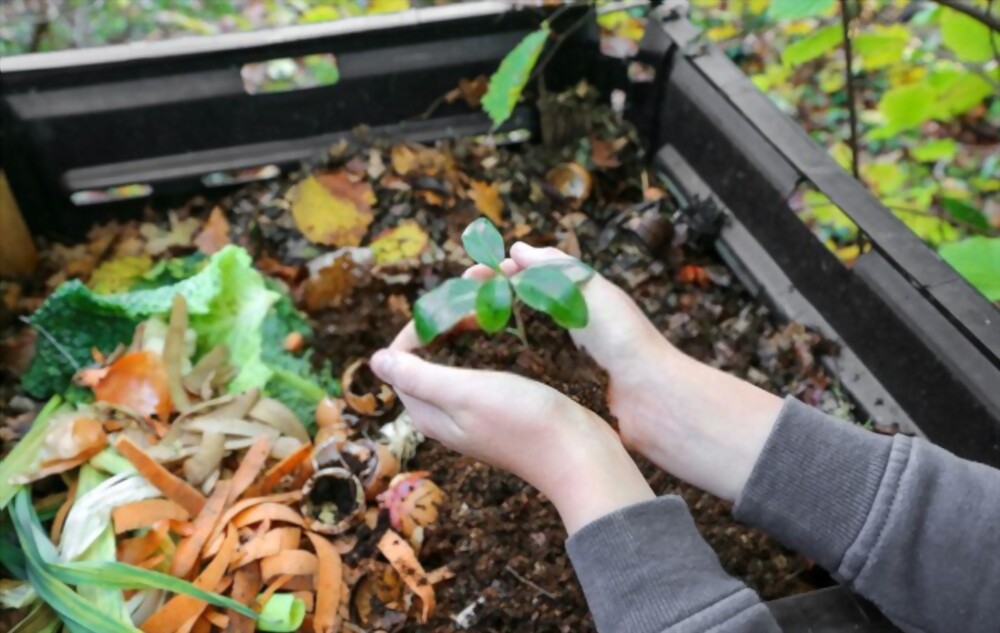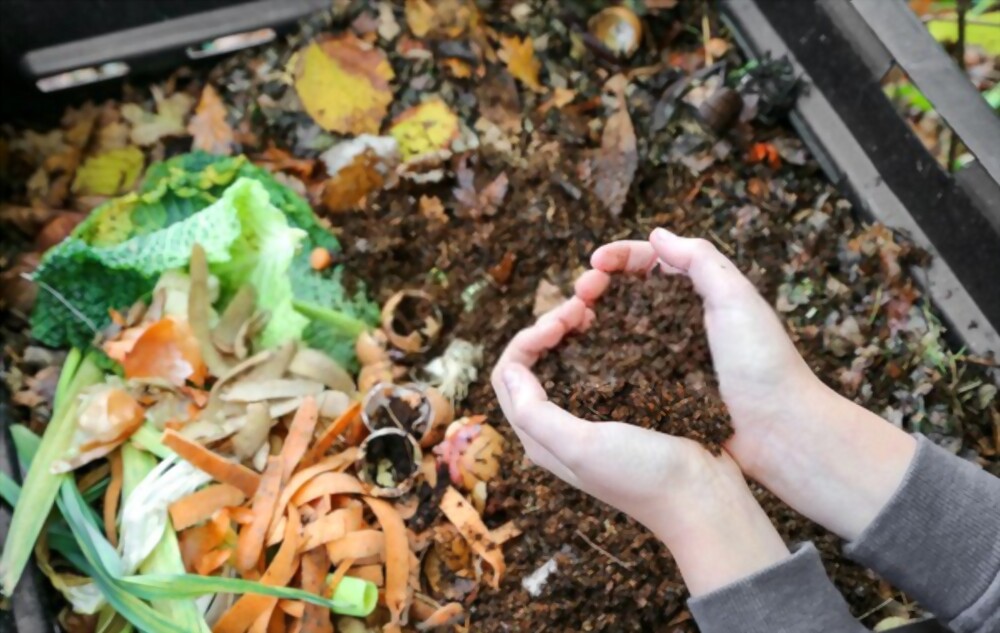
Compost bins and piles are both excellent ways to recycle the food scraps and yard trash you produce at home.
A layer of green materials, like vegetables, is added to the bottom of a compost pile before a layer of brown materials, like leaves, is added on top. Organic waste can be placed in compost bins, dry or moist, to be converted into compost.
Compost bins and piles have advantages and disadvantages of their own. For instance, compost containers offer secure and convenient access for food waste composting, resulting in reduced clutter and odor. The nicest thing about compost piles, though, is that they are less expensive and don’t need any specialized equipment or abilities.
The distinction between a compost bin and a compost pile is complex. In order to help you choose which one to use, this article compares both compost piles and compost bins and outlines the advantages of each.
Table of Contents
Defining What is a Compost Pile and a Compost Bin
An organic waste accumulation called a compost pile is left to break down naturally to produce fertilizer. Compost is produced when an open pile of organic material decomposes.
A compost bin, on the other hand, is a closed container where organic matter is kept until it decomposes sufficiently to be utilized as compost.
The container may take the form of a barrel, box, or elevated frame with a top that is closed off to allow for aeration. It is employed for managing and storing organic compounds.
Is it better to have a compost pile or a bin?

Depending on what you’re searching for, you can choose whether a compost bin or pile is ideal.
Effective composting can be accomplished using both compost containers and compost piles.
Compost Bins are a more contemporary type of composting than the classic compost pile, which is a way to decompose organic matter.
Are you seeking for the best compost bin or pile then? If so, there are various important conditions to take into account when composting, including time, area, size, and other comparable factors.
But if you’re seeking for the greatest and most efficient composting techniques at home, you may definitely choose one of these options.
Compost bins and compost piles are contrasted in the following section of the article. You can use this comparison to determine which is ideal for you based on a few different criteria.
Comparing a Compost Bin and Compost Pile
Are you interested in the various functions that compost bins and piles can provide? Here is a straightforward comparison table to assist you in selecting the option that is best for you.
Comparisons have been developed based on a few factors that one should take into account while making a decision. Let’s look at the variables and decide which is ideal for you.
| Parameters | Garbage can | Compost heap |
|---|---|---|
| Space | With a compost bin, less space is needed. | Compost piles need more room because there are less restrictions on the compost material. |
| Odors | It restricts the smell that comes from decomposition if compactly closed. | It emits a repulsive odor. |
| Labor-Intensity | Less labor is needed with this procedure. Simply add waste, wait for the process to begin, and then utilize it. | It takes a lot of work to use this technique. The compost pile needs to be rotated frequently to produce optimal results. |
| Time | The stuff decomposes more quickly in the compost bin. For crude compost, it takes about 3 weeks, and for fine compost, it could take up to 3 months. In the compost bin, heat and moisture are effectively controlled. | Hot compost piles may take 3–4 weeks, whereas cold compost piles often take 6–12 months. |
| Composition of Amount | Because of the volume restriction of the bin, less compost is prepared. | Compost can be created in larger quantities. Several heaps of trash can hold even more trash. |
| Attraction of Flies | Fly and fruit flies can only access a small portion of the composting material. | More flies can be found in compost piles. They have easy access to compostable materials and can easily grow on them. |
| Rodents have access | fewer rodents have access. due to restricted access, discourages rodents from building nests. | due to easy access to the composting materials, attracts rodents. provides rodents with a good place to nest. |
| Cost | Compost bins must be purchased from a store for a pittance, though they can also be manufactured at home. | You can create compost piles for little to no money. |
| Eyes-appealing | Make the garden appear more orderly and tidy. Bins for composting look more attractive. | Compost mounds take away from the garden’s aesthetic appeal. They have a less appealing appearance. |
We’ll go through the advantages of a compost bin over a compost pile in the following section of the article. It will go over the benefits or drawbacks that each option has over the others.
8 Reasons to Choose Compost Bin Over Compost Pile
Bins designed specifically for composting are known as compost bins. To facilitate the process, they may have a cover or other features.
Compost bins have the following benefits over compost piles:
- More aeration and user-friendliness are provided by a compost bin, although upkeep is higher than with a basic pile. Aeration is a key component of the composting process.
- Compost bins typically come in a variety of sizes and designs and are composed of metal or plastic. They are available for purchase online, at garden centers, and hardware stores.
- One of the best aspects of compost bins is the ability to regulate the temperature inside the container (which aids in the decomposition of the material).
- When it’s time to add extra ingredients, it makes the compost more accessible.
- It lessens the possibility of animal invasion.
- Compared to compost piles, compost bins are more useful and cost-effective.
- A compost container doesn’t need as much area as a compost pile does. It will be the greatest location for your kitchen leftovers, and you may put it anyplace in your lawn or garden.
- Compost bins only need to be turned once every few weeks or months, however compost piles need to be turned at least once every week to ensure that the decomposition process proceeds smoothly.

5 Reasons to Choose Compost Pile over Compost Bin
A compost pile is a collection of organic waste that eventually breaks down into compost. It can be made by layering various items, including paper, grass, leaves, and food leftovers.
The following justifies why a compost pile is preferable to a compost bin:
- The size of the pile and how frequently it is turned over determine how long it takes for a compost pile to become useable. Because there is less ventilation in a pile, it will take longer than utilizing a container.
- A less expensive alternative to a compost container is a compost pile. It is also simpler to construct and keep up.
- Compost bins are more expensive than compost piles. People who live in apartments or with limited space may find it inconvenient to use compost bins because they are pricey and take a long time to set up.
- Compared to compost bins, compost piles are more natural and need less work. For people who wish to generate their own compost without spending a lot of money on pricy machines or equipment, they are a more sustainable and environmentally friendly solution because they require less effort and upkeep.
- Because compost bins utilize electricity to heat the decaying material inside of them, creating greenhouse gas emissions, compost piles are better for the environment because they emit less methane.
